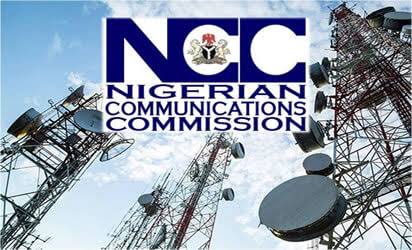The Nigeria Communication Commission (NCC), Ibadan zonal office, has called on the public to regard telecommunication facilities as collectively-owned essential to provide efficient services.
The NCC made the call at a stakeholders sensitisation workshop on the protection of telecommunications infrastructure in Ilorin on Thursday.
The NCC Zonal Controller, Mr. Ekishola Oladisun, said that the aim of the programme was to sensitise the public on the importance of telecommunication infrastructure within the domain.
Oladisun said that the advent of GSM re-engineered the economy and social well-being.
He, however, said there were some challenges in the industry arising from some misconceptions and misguided facts about key telecommunication infrastructure.
He said that telecommunication infrastructure such as Base Transceiver Stations (BTS) had been the target of vandalism, theft and hostility from some host communities.
“Telecommunication has been an integral part of our daily lives, with provision of services ranging from telephony, entertainment, information and learning over a broad range of media platforms.
“Regrettably, vandalism has continued to be a major challenge in the telecom industry and the commission has continued to collaborate with the relevant agencies to ensure adequate security for the facilities,” he said.
Mr. Tajudeen Saka, NCC Head of Consumer Affairs Bureau Unit, Ibadan zonal office, said that communities have roles to play in protecting telecommunication infrastructure.
According to him, there are cases where hoodlums vandalise equipment without considering other members of the community.
He said there were also some local communities that rejected the installation of telecommunication infrastructure.
“One of the reasons for rejecting installation of telecommunication infrastructure is lack of knowledge of its importance and the fear of radiation that comes from the mast.
“There are two types of radiation that come from the mast; the first is non-iodizing radiation that is not harmful to the body and the second is iodizing radiation that can cause harm to the body system.
“The radiation that comes from telecommunication BTS is non-ionizing and does not cause any harm to human health,” he said.
Saka urged people to embrace the installation of telecommunications infrastructure in their communities.
The NSCDC State Commandant, Mr. Makinde Ayinla, appreciated the sensitisation and thanked the NCC representative on the efforts in addressing the corps.
Ayinla said that part of the mandate of the corps was to protect critical infrastructure, secure lives and property as well as maintain law and order.

NCC Calls For Citizens’ Protection of Telecoms Infrastructure
Related Posts
Add A Comment

